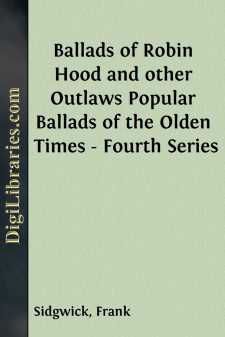Categories
- Antiques & Collectibles 13
- Architecture 36
- Art 48
- Bibles 22
- Biography & Autobiography 816
- Body, Mind & Spirit 145
- Business & Economics 28
- Children's Books 17
- Children's Fiction 14
- Computers 4
- Cooking 94
- Crafts & Hobbies 4
- Drama 346
- Education 58
- Family & Relationships 59
- Fiction 11834
- Foreign Language Study 3
- Games 19
- Gardening 17
- Health & Fitness 34
- History 1378
- House & Home 1
- Humor 147
- Juvenile Fiction 1873
- Juvenile Nonfiction 202
- Language Arts & Disciplines 89
- Law 16
- Literary Collections 686
- Literary Criticism 179
- Mathematics 13
- Medical 41
- Music 40
- Nature 179
- Non-Classifiable 1768
- Performing Arts 7
- Periodicals 1453
- Philosophy 66
- Photography 2
- Poetry 897
- Political Science 203
- Psychology 45
- Reference 154
- Religion 516
- Science 126
- Self-Help 85
- Social Science 82
- Sports & Recreation 34
- Study Aids 3
- Technology & Engineering 59
- Transportation 23
- Travel 463
- True Crime 29
Frank Sidgwick
Frank Sidgwick (1879–1939) was a British publisher, editor, and writer, best known as the co-founder of the publishing house Sidgwick & Jackson in 1908. He played a significant role in promoting literary talent and published works by many well-known authors of his time. Sidgwick also authored several works, including "Ballads of the Fleet" (1907), which showcases his interest in poetry and folklore. Additionally, he was recognized for his scholarship in ballad literature, contributing to the preservation and study of traditional English ballads.
Author's Books:
Sort by:
by:
Frank Sidgwick
PREFACE Of making selections of ballads there is no end. As a subject for the editor, they seem to be only less popular than Shakespeare, and every year sees a fresh output. But of late there has sprung up a custom of confusing the old with the new, the genuine with the imitation; and the products of civilised days, ‘ballads’ by courtesy or convention, are set beside the rugged and hard-featured...
more...
by:
Frank Sidgwick
PREFACE This volume concludes the series, begun in 1903, which was intended to comprise all the best traditional ballads of England and Scotland. The scheme of classification by subject-matter, arbitrary and haphazard as it may seem to be at one point or another, has, I think, proved more satisfactory than could have been anticipated; and in the end I have omitted no ballad without due justification....
more...



